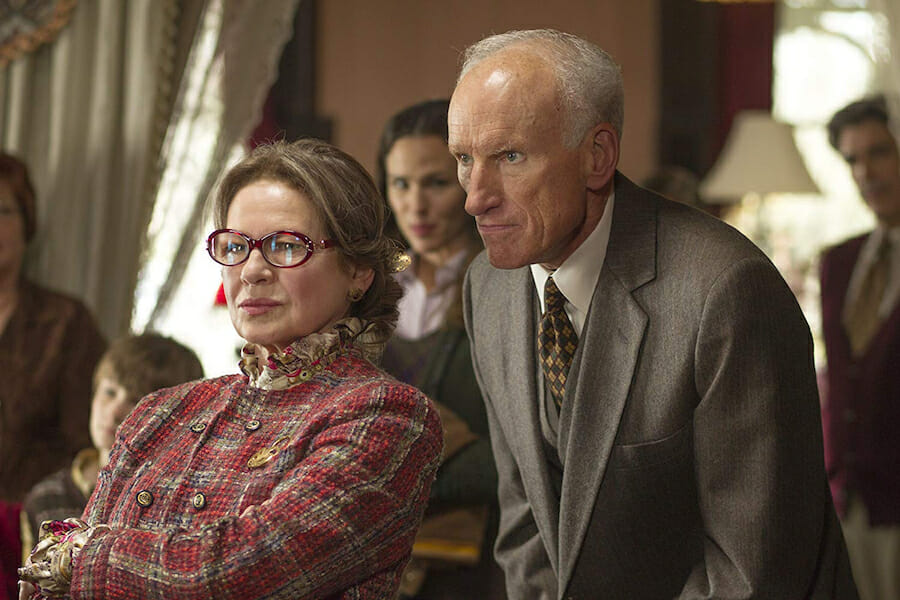
Honoring James Rebhorn’s Craftsmanship
The late actor James Rebhorn was a sterling performer of Hollywood’s supporting roles. He appeared in over fifty films, often typecast as a suited establishmentarian. “I try to make it known to directors and producers,“ said Rebhorn in a 2007 interview, “that I am interested in doing other types of roles than the ones I have done, but it is difficult. It is such a huge investment of money in motion pictures that they don’t want to take chances.”
Despite those strictures, Rebhorn flourished as an artist. Rebhorn had such humanity that a soft paternalism often shone through his hardest characters. Some of his high-profile film roles bookended my wonder years.
The year 1992 featured Rebhorn in two major films, Scent of a Woman and My Cousin Vinny. In the former, he plays Headmaster Trask, the leader of a private elite prep school for boys called Baird. Task’s role as disciplinarian brings him into direct conflict with Lt. Colonel Frank Slade, played with howitzer force by Al Pacino:
Mr. Trask: Please watch your language, Mr. Slade. You are in the Baird School, not a barracks. Mr. Simms, I will give you one last opportunity to speak up.
Lt. Col. Frank Slade: Mr. Simms doesn’t want it. He doesn’t need to be labeled, “Still worthy of being a Baird man.” What the hell is that? What is your motto here? “Boys, inform on your classmates, save your hide. Anything short of that, we’re gonna burn you at the stake?” Well, gentlemen, when the shit hits the fan, some guys run and some guys stay. Here’s Charlie facing the fire and there’s George hiding in Big Daddy’s pocket. And what are you doing? You’re gonna reward George and destroy Charlie.
In the tradition of the best supporting actors, Rebhorn provides a resolute stimulus for a career lead performance. Without Trask’s stubborn adherence to school code, Slade’s rebellion would rally no foot soldiers. “[M]ost of what you’re doing [as an actor] is reacting so that dialogue between actors – they feed each other,” Rebhorn once said. “They kind of build in a scene.” The rich interplay in Scent of a Woman earned Pacino an Academy Award.
My Cousin Vinny again positioned Rebhorn as a foil for the flamboyant; he played FBI auto expert George Wilbur opposite Marisa Tomei’s New Yorker sass queen Mona Lisa Vito. The characters appear as rival witnesses in a court trial in the Deep South. Wilbur, called by the prosecution, delivers his testimony with smooth officialdom, basing his tire mark analysis on “a Hewlett-Packard 5710-A dual-column gas chromatograph with flame analyzation detectors.” Vito, called by the defense, delivers her rebuttal with Oscar-winning tart. “Well, it was just great fun,” Rebhorn said of the vibe on My Cousin Vinny. “[E]verybody was very relaxed, and everybody really enjoyed it.”
In Independence Day (1996), Rebhorn played one of the craftiest weasels in his career, Secretary of Defense Albert Nimzicki. The Secretary hides the existence of aliens from President Whitmore, played by Bill Pullman. In a moment of cinematic glory for the presidency, Whitmore eventually fires Nimzicki.
Rebhorn finally enjoyed a comedic, endearing role in Meet the Parents (2000), where he played Dr. Larry Banks. Dr. Larry, eminent plastic surgeon, likes to practice the art of the joke part-time, gesturing “cut that out” when he is introduced. When the rest of the actors build a funny scene, Dr. Larry likes to add one more zinger.
For example, he piles on humor to the septic tank overflow scene:
Bob Banks: What is that smell?
Jack Byrnes: That smell, Bob, is our shit. Focker flushed the toilet in the den so the septic tank overflowed.
Greg Focker: I told you, Jack, it wasn’t me. It was Jinx.
Jack Byrnes: Focker, I’m not going to tell you again! Jinx cannot flush the toilet. He’s a cat for Christ sakes!
Larry: The animal doesn’t even have thumbs, Focker.
Regardless of the size or quality of roles, Rebhorn always found pleasure in his craft. “The way I look at the world, if you can’t find a way to get something good out of the experience, then you have lived an unhappy life,” he said. “All the actors I have worked with, superstars or otherwise, I have enjoyed.”
Before he passed away last week due to melanoma, Rebhorn prepared his own obituary. From his father, he “learned that there is no excuse for poor craftsmanship. A job well done rarely takes more or less time than a job poorly done.” For his two daughters, he wished “that they will grieve his passing only as long as necessary. They have much good work to do, and they should get busy doing it. Time is flying by.”
Rebhorn concluded the remarks by calling himself “a lucky man in every way.”
Lost is the opportunity to enjoy the nuance he would have brought to more lead parts in feature film and on stage. Greater still is the loss to Hollywood of the value of craftsmanship. Rebhorn, like Steve Jobs, defined quality as completeness accomplished through generosity of effort—that sense that every face of a cabinet or computer or film must be perfected, even the invisible ones.

